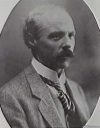The operetta's story unfolds within the smoking-room of the Cassewary Club, where the members have decided to discharge the waiters and take on waitresses instead. The newly engaged waitresses, who are actually society girls in disguise, turn the tables on the members, however. Those not intent on finding a rich husband seem to be keen to test 'the loyalty of their lovers or spying upon their peccant [sic] consorts.' This situation naturally calls for a number of social and intimate complications, matters which appear, according to the Sydney Morning Herald review, to move 'the action along brightly enough in the first act, and only begins to halt perceptibly in the second. At this point,' notes the critic, 'it becomes evident that a clever sketch which judiciously condensed would make a first-rate "lever de rideau" at the regular theatres, has been extended on the rack of an entire evening's entertainment. Still, slight though it might be, Club Life is always well written, and the lyrics are smart and generally to the point' (13 Dec. 1895, p6).
Songs known to have been written for the opera are 'In Our Society' (opening male chorus); 'All Things Come to the Man Who Waits' (sung by Miss Hixon, with the inference); 'Saveloy Duo' (Butler and Austin); 'We Parted in Those Olden Days' and My Love, Good Night' (Marks); 'Will You Have Me, Sweet?' (Weir and Marks); 'The Cigarette Song' (Weir) ; 'A Maiden Met' (Rose); 'Long Said the Old Man' (Gibson); and 'Human Vanity' (Gibson and Hixon).
The Herald's theatre critic wrote of Ernest Truman's music:
[He] can be as scientific as anyone when he likes, [but] has wisely devoted himself to melody. Where [Paterson has] lagged a little he seems to have taken up the running, so to speak; and whilst the first act does not lack good songs, it is in the second act that the best music, the more elaborate orchestration, has been forthcoming' (p6) If there was any major criticism of the music it seems to have been directed towards the orchestra, which was seen as the weakest link. In this respect the critic suggests that 'a true evaluation of the orchestration [was] difficult to judge' (p6).


